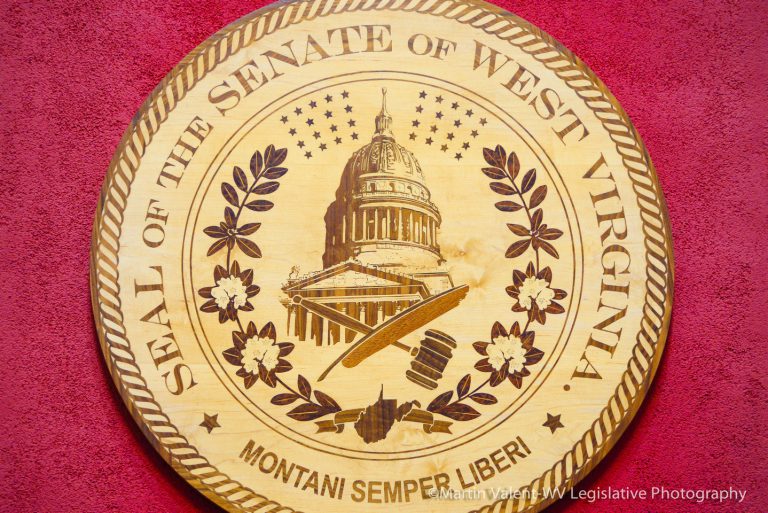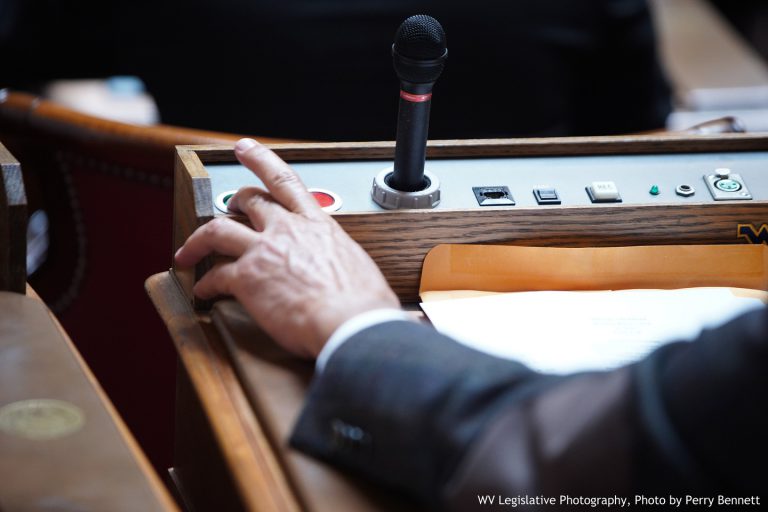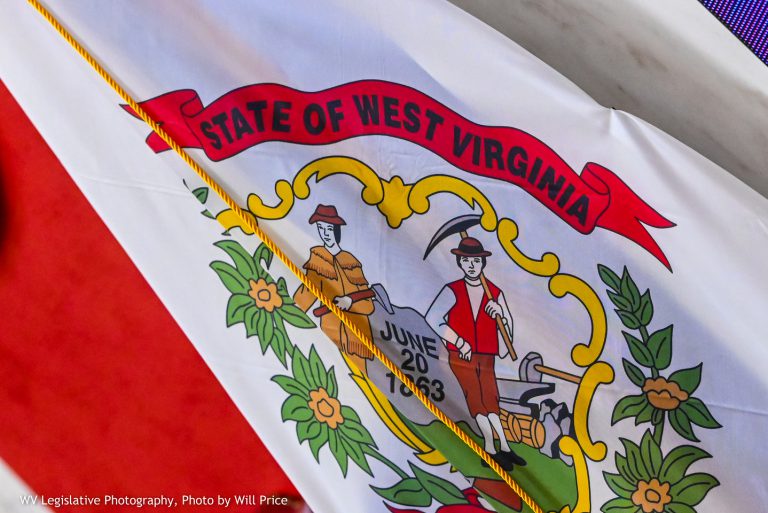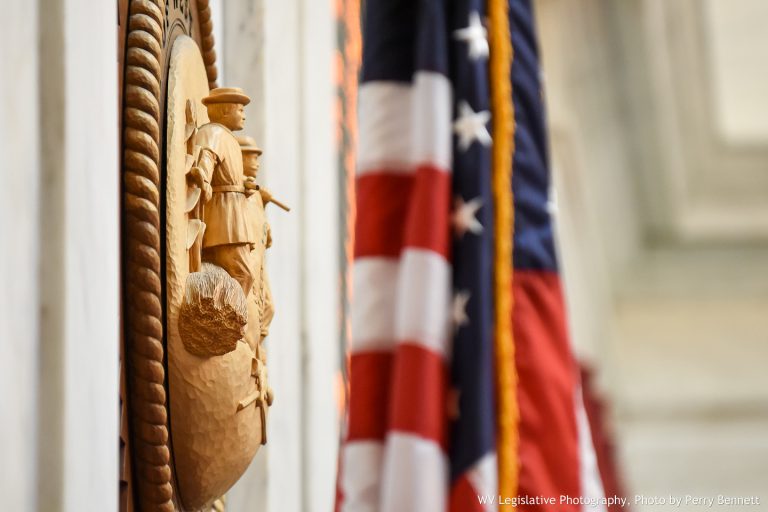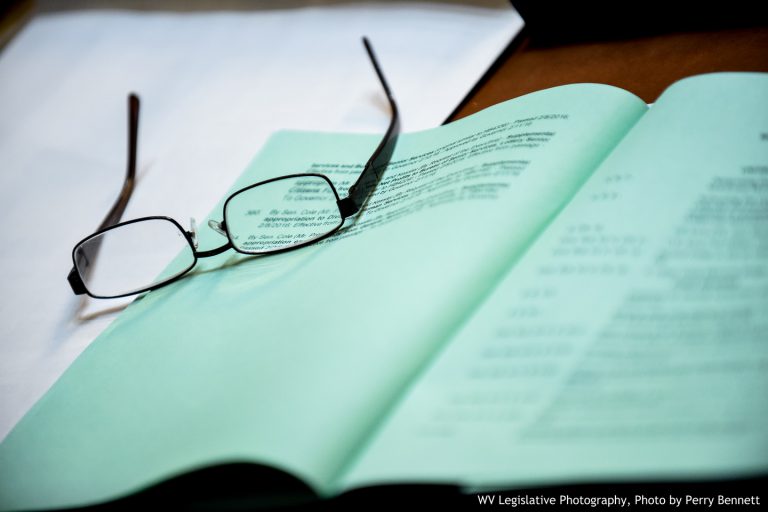As of 4 p.m. Wednesday, March 9th, 2005, the 29th day of the 2005 Regular Session, 500 bills have been introduced in the Senate. Of those, 12 have been passed by the Senate since March 3rd and sent to the House for its consideration. Some include:
Senate Bill 19 would eliminate the currently dormant Advisory Board for the Secretary of the Department of Health and Human Resources and add the Office of Inspector General. The Inspector General would report directly to the Secretary. Neither the Secretary nor any employee of the Department would be able to prevent, inhibit or prohibit the Inspector General or his/her employees from initiating, carrying out or completing any investigation, quality control review or other oversight of public integrity.
Senate Bill 78 would expand the Route 2 and Interstate 68 Authority to include 26 members, adding Cabell, Mason and Jackson Counties to the authority. Wood, Pleasants, Tyler, Wetzel, Marshall, Ohio, Brooke, Hancock, Marion and Monongalia counties are already covered. The Authority was established to promote economic development and tourism along West Virginia Route 2 between Huntington, Parkersburg and Chester and also Interstate 68 between Moundsville and Morgantown.
Senate Bill 101 would allow a county commission or municipality to request the Commissioner of Highways to designate and operate a traffic control signal as a flashing signal. If the request is approved, then the county commission or municipality making the request would be responsible for costs incurred by the Division of Highways.
Senate Bill 107 would remove criminal penalties for a person whose dog, without the person’s direction or encouragement, travels onto the fenced, enclosed or posted land of another in pursuit of an animal or wild bird. The person retrieving the dog would not be permitted to take game from the land, kill domestic animals or fowl or cause other damage to the land.
Senate Bill 152 would allow county commissions to designate one day, which is not currently a legal holiday, as a legal holiday. The chosen day would be substituted for one of the regularly scheduled legal holidays, but the same day would not be permitted to be substituted two years in a row. The current legal holidays are New Year’s Day, Martin Luther King’s Birthday, Lincoln’s Birthday, Washington’s Birthday, Memorial Day, West Virginia Day, Independence Day, Labor Day, Columbus Day, Veterans’ Day, Thanksgiving Day, Christmas Day and any day on which a general, primary or special election is held.
Senate Bill 226 would require child protective service workers, adult protective service workers, law-enforcement officers and humane officers to share information and coordinate efforts for suspected child abuse or neglect, suspected abuse or neglect of incapacitated or elderly adults, suspected animal cruelty or inhumane treatment. The bill would outline specifications for the cross-referencing of abuse claims because of the belief that a person who abuses animals has a propensity to abuse humans.
Senate Bill 268 would change current state law to conform to federal requirements by providing that possession of beer and liquor by a person under the age of 18 would be considered a status offense instead of a misdemeanor. Status offenses are considered crimes that only a juvenile could commit, such as truancy or underage possession of alcohol. Any person under 18 who purchases, consumes, sells, possesses or serves beer would be guilty of a status offense and upon conviction, would be referred to the Department of Health and Human Resources for services, instead of the current jail time and monetary penalties.
Senate Bill 280 would remove payment of registration fees of a licensing board or commission of the state. State licensing or registration requirements would be suspended during a period of absence for active duty for any member of the Armed Services of the United States or the National Guard, or other reserve component of the Armed Forces until 60 days after the member’s return from active duty.
Senate Bill 411 would allow the Tyler County commission to meet as a levying body for the purpose of presenting an election to the voters of the county. The election would be on the question of authorizing an excess levy for vital public services in Tyler County between March 27 and 28 until the second Monday of April 2005.
A Sampling of Bills Introduced In the Senate
Senate Bill 465 would establish the Food Tax Relief Act, eliminating the consumer sales tax on food and food products sold in grocery stores over a three-year period. On and after January 1, 2006, the food tax would be reduced from six percent to four percent and after January 1, 2007, the tax would then be reduced to two percent.
Senate Bill 470 would prohibit the use of handheld cellular telephones while driving and provide a penalty for violations. A person would be fined for a violation, but no points would be assessed against his/her driver’s license. Any person violating the provisions would be guilty of a misdemeanor and upon conviction would be fined up to $100. If there is a second conviction within one year, the fine would be up to $200; and, upon a third or subsequent conviction, the fine would be no more than $500.
Senate Bill 477 would require a paper copy of a voter’s votes when using an electronic voting system; provide that the paper copy could only be used for a random count of precincts or if an election is contested; and, to provide that the Secretary of State may enforce rules. This bill would look to ensure voter confidence in the electronic voting system.
Senate Bill 482 would allow a member of the West Virginia National Guard who is receiving payments for tuition and fees and is discharged from the military service due to wounds or injuries received in the line of duty, to continue to receive payments as if he/she were still a member of the West Virginia National Guard.
Senate Bill 484 would lower the normal retirement age for State Police officers; specify starting date of annuity; eliminate any reduction in the benefit of a State Police officer who is disabled on the job; define month of service and years of service; and, specify the starting date of retirement payments. Members would be able to retire with full benefits upon either attaining age 50 and completing 25 or more years of service or attaining the age of 52 and completing 20 or more years of service. A member who is less than age 50 would be able to retire upon completing 25 or more years of service.





